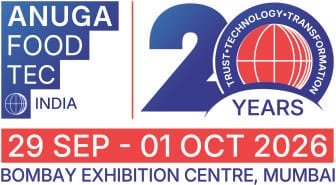metal packaging industry of India continues to face a shortage of raw material as most of the global suppliers of tinplate/ tin-free steel have preferred to keep out India from supplying raw material in the wake of imposition of BIS standards which came into effect from April 17, 2021.
Added to that are the rising cases of Covid-19 and possibilities of lockdown and short working hours due to curfew. The implementation of the BIS (Bureau of Indian Standards) Standard on the import of tinplate is a stumbling block for the metal packaging industry, which may lead to a complete shutdown of the industry.
Despite repetitive representation and meeting with concerned ministry and department, there seems to be no relief for the industry, which is mainly operating under the MSME sector. The net impact would be an exorbitant increase in packaging material prices, especially for pharma, food and beverages. Another setback would be shutting down of small units and, ultimately the job losses.
The metal containers and closures are mainly used for the packing of edible and non-edible products. The tin-free steel is majorly used to manufacture closures, crowns, and components etc., used to seal bottles for soft drinks, beer, juices and flavoured milk, etc.
This industry, mainly dependent upon the import of tinplate/ tin-free steel from various countries, is under tremendous pressure with the shortage of raw material. The prices have escalated more than 35% already, indicating that it is likely to increase further. Apart from prices, another major issue of concern is the availability of material as domestic supply is not geared up to meet domestic demand.
India’s primary organisation that represents the interests of companies involved in the production of metal containers, packaging and allied components, the Metal Container Manufacturers’ Association (MCMA), has urged the government to put on hold the implementation of steel and steel products Quality Control Order dated July 17, 2020.
The association has requested the ministry of steel to postpone the implementation of the QCO till sufficient quantity of tinplate/ tin-free steel is produced locally to meet the industries’ demand of 700,000-tonnes per annum as the industry is already under pressure due to the second wave of the pandemic with lockdown being implemented in few states will only worsen the situation.
Such Quality Control orders had been issued earlier also in 2008, 2015 and 2017 but keeping in mind the demand-supply gap, practical difficulties in implementation and requirement of the MSME sector, particularly in the metal packaging, the government withdrew the draft quality control order on tinplate/ tin-free steel. The situation has not changed since then.
















